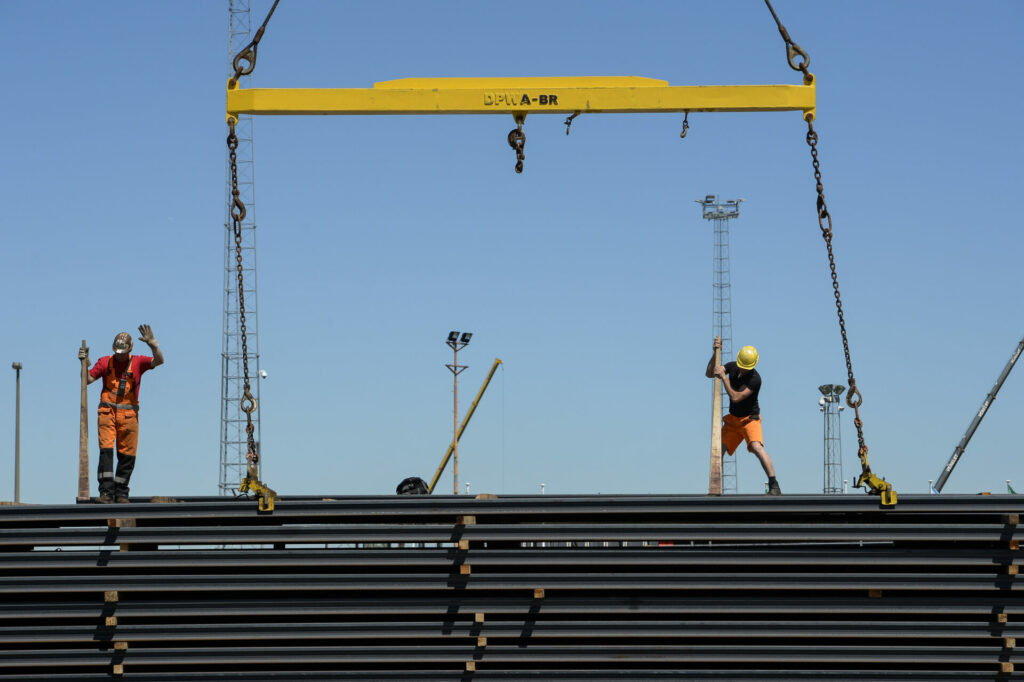Around one million employees in Belgium will see their wages increase at the start of 2025, thanks to Belgium's wage indexation system.
Belgium is the only eurozone country besides Luxembourg in which both public and private wages are indexed to inflation. This obliges employers to adjust wages upwards along with the increase in the cost of living. The wage rise is tied to the smoothed health index, calculated based on the average of the last four months. Indexation is automatic, meaning employees don't have to request the pay rise.
But HR services provider SD Worx notes that Belgium's system is not harmonised across sectors. "There is no law saying that the salaries of all staff must be indexed at a certain time in the same way," legal expert Jean-Luc Vannieuwenhuyse told The Brussels Times.
Much depends on the profession: Belgium has more than 200 sectors, each with its own joint committee where employers and employees consult on how wage rises are calculated.
Fixed time, variable rise
In practice, Belgium has two main indexation systems. The first indexes wages once a year, typically on 1 January. Automatic wage indexation in these sectors was 1.48% in 2024; at the start of 2023 however the increase was as high as 11% due to the high inflation in 2022.
Based on current forecasts and the fact that inflation rose above 3% in September as gas and electricity became more expensive, SD Worx predicted an index rate for January 2025 of around 3.5%.
"This figure isn't set in stone and will depend on the evolution in inflation, specifically in November and December," Vannieuwenhuyse clarified. While a preliminary forecast can be made, upcoming events – such as the American elections – could have an impact. "It is possible that it ends up being slightly more or less than 3.5%."
This January indexation will benefit employees in the five largest joint committees. Together they account for more than a million employees and more than 120,000 private sector employers. According to the current forecasts, the wage increases from 1 January 2025 will be:
- 3.5% for Joint Committee 200, the biggest joint committee in the country. It covers almost half a million white-collar workers and executives who do not belong to any other Joint Committee. This includes people working in call centres, temporary employment agencies, IT, consultancy, advertising, printing or construction;
- 3.52% for Joint Committee 302, including more than 158,000 blue-collar and white-collar workers in the hotel and catering industry;
- 3.52% for Joint Committee 140.03, which oversees the nearly 99,000 employees in the road transport industry, such as lorry drivers;
- 3.52% for Joint Committee 118 and 220, together covering around 10,000 employees in the food industry;
- 3.48% for Joint Committee 226, covering some 55,000 white-collar workers in international trade and logistics.
Cleaners covered by JC 121 see their wages go up at two fixed times. SD Worx currently predicts a rise of 1.15% on 1 January and a further 1.18% increase on 1 July.

Staff in the catering industry will also receive a raise. Credit: Belga/ Aude Vanlathem
Fixed rise, variable time
The second indexation system does not index at fixed times. Instead, wage increases are triggered by the next "pivot index", when the cost of living breaches a defined threshold. In this instance, wages are normally put up by 2%.
"Because it is not bound by time wages can be indexed several times a year, as was the case in 2023 because of skyrocketing inflation." This system is most common among civil servants but also applies in the health sector.
The SD Worx forecast (which corresponds with the Federal Planning Bureau's projection) predicts that the pivot index will be passed in January 2025. This will mean that civil servants' wages will be indexed in March. This system is also used to increase pensions and social benefits. These will increase by 2% in February 2025.
Related News
- Belgian inflation highest in eurozone in September, but expected to fall below 2% next year
- Return of 40-year mortgage loan ensuring lower monthly pay-off
Vannieuwenhuyse said the obligatory pay rise remains a concern for companies. In 2023, when the indexation was 11%, businesses called for the mechanism to be abolished, arguing that it undermines Belgium's economic competitiveness. "It does amount to serious additional cost for the employer, which is something they have to just accept, which is a serious investment."
However, an interim report by Belgium's Central Business Council (CRB) has shown that wage growth in Belgium is now more or less in line with neighbouring countries. This would indicate that the gap struck in the wage handicap – the difference in wage cost with neighbouring countries – has almost completely disappeared.

